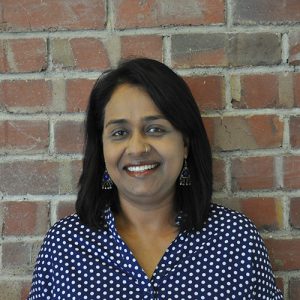Vineeta Sinha
PROFILE
The Department of Sociology at NUS is special to me for several reasons. This is where I was exposed, first as an undergraduate and then a master’s student, to the disciplines of sociology and anthropology and to a group of inspiring teachers. This is also now a place where I practice my craft – teaching and undertaking sociological and anthropological research – with great personal satisfaction. The dual disciplinary grounding, which is a primary part of my intellectual inheritance, has enriched my training as an ethnographer and enabled me to draw on the strengths of both fields of study.
My own teaching now at the department certainly reflects this exposure as I incorporate and integrate elements from sociology and anthropology in classroom teaching and graduate student supervision. I enjoy teaching enormously and find it extremely energizing. In particular my engagement with the third year module “Social Thought and Social Theory”, which I have been teaching now for more than a decade, has been intellectually and personally meaningful: it has allowed me to push the boundaries of an inherited field and contemplate new and different ways of conceptualizing the field of classical sociological theory.
In terms of research, it could be said that I have remained with the ‘same’ field I was drawn to as an honours student – the numerically small Hindu community and the practice of Hinduism in Singapore. Yet, my long-term engagement with this field has allowed me to see subtle shades and nuances in an empirical domain which continues to reveal different dimensions and insights. I have a strong sense that there is much more that still remains to be done! My research has moved from the study of new religious movements (imported into Singapore from India) to an ethnographic account of Hinduism in Singapore to theorising the complex health care scenario of medically plural Singapore.
Recently, my work has focused on exploring forms of Hindu religiosity in the diaspora, the intersections of religion and commodification processes, the interface of religion and materiality to making sense of religion-state relations. I see myself primarily as an ethnographer who has recently become interested in scrutinizing archival material as an anthropologist. As such I find the related fields of ‘ethno-history’ and ‘anthro-history’ exciting domains to explore in the course of my on-going ethnographic research. In sum I have found this institutional location at NUS to be an enabling space that has facilitated by growth both as a teacher and researcher.
RESEARCH INTERESTS
Social Theory; Religion; Reading and Writing Ethnography; Political Economy of Health Care
RECENT PUBLICATIONS
- Religion State Encounters in Hindu Domains: From the Straits Settlements to Singapore, The Netherlands: Springer, 2011.
- Religion and Commodification: Merchandising Diasporic Hinduism, London and New York: Routledge, 2010.


